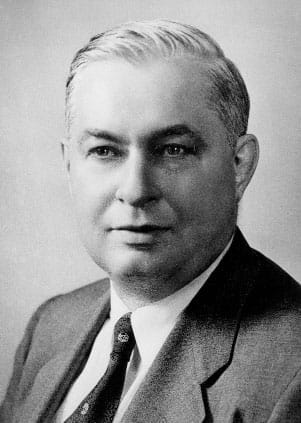After beginning his career as a consultant, Alderson joined the Wharton faculty in 1959. He quickly became the leading marketing theorist of his time. Alderson saw that mathematical models and quantitative techniques could be used to research and analyze consumer taste, the size of advertising budgets and sales forces, and in distributing marketing messages across media—techniques that helped create the field of market research.
Wharton Marketing Professor Paul Green (see p. 23) calls Wroe Alderson an “intellectual monarch of marketing research.” But Alderson, he affectionately adds, was a Quaker with little time for monarchies. Today Wharton’s Marketing faculty comprise the most cited department in the world.
Under Alderson’s leadership, Wharton began to build a more scientific basis for marketing research and became a major force in applying analytic models to marketing challenges. With a firm belief that theory and practice go hand in hand, Alderson wrote the book, Marketing Behavior and Executive Action, which focused on social science rather than institutional economics.
Alderson, with his young colleague Green, opened a Management Science Center at Wharton in 1962. He used the center as part of his MBA course in Marketing Management, giving his students a chance to act as consultants and to practice new techniques on real-world problems—now common practice in MBA education. Alderson also established Wharton’s Annual Marketing Theory seminars, served as Trustee of the Marketing Institute, and engineered the migration of the famed Operations Research group at Case Institute to Wharton in 1963.
“He carved a course through which marketing theory would develop, drawing in streams of research from other researchers and other disciplines, eroding and shaping the assumptions of marketing research, carving out an indelible path of the landscape of marketing,” wrote Terry Beckman of Queens University in a paper titled “The Wroe River: The Canyon Carved by Alderson.”


























